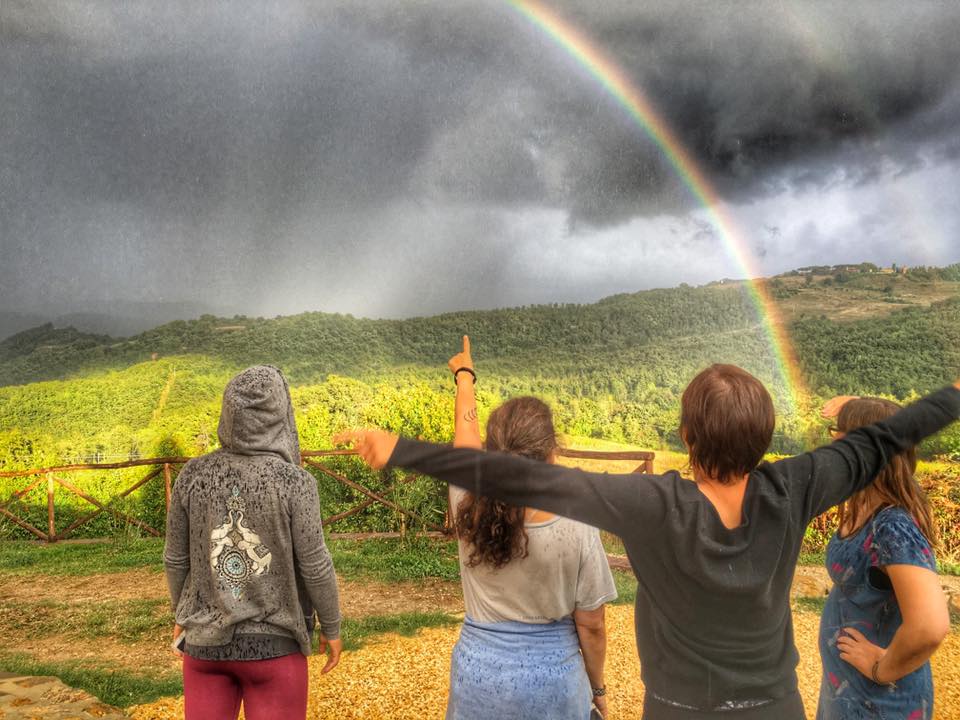By Amy Hatvany
I don’t remember my parents talking to me about sex, other than making it clear that opening my legs to a boy before I got married was a sin. What I do remember is thinking that I was a lesbian because I masturbated—I knew girls who touch other girls were gay, so if I touched myself, didn’t that mean the same thing? I was confused, ill-informed, and scared, so I shoplifted a Penthouse Letters magazine when I was in middle school, desperate to understand my own body and if the raging, hormonal urges that sometimes took me over were normal. But instead of validation, what I found were graphic stories of women who submitted to men’s forceful, probing mouths, fingers, and dicks. These women protested at first—some of them even said no—but soon found themselves swooning, powerless to resist the “pleasure” of violation.
Years later, I would wonder if what I learned about consent from these descriptions—that it was a man’s job to make a woman realize what she really wanted; that her “no” was simply waiting to be turned into a yes—was part of what kept me from telling anyone about the boy who unzipped his jeans and jammed his erection into the back of my throat when we were sitting together in the front seat of his car. I was on the edge of fifteen, and he was older, someone I knew, someone I’d had a crush on, and so I didn’t fight, I didn’t try to stop him. I only endured, waiting for the pain and paralyzing terror of what he was doing to loosen its vice-like grip on my chest.
Today, I realize that magazine’s contents were only a small piece of a much larger societal mechanism which conditions men to dehumanize women—to view them only as sexual objects, bodies for the taking, whenever and however men want them. I understand that we live in a culture that still blames the victim of sexual assault for getting drunk or wearing provocative clothing. When an unconscious woman is violently assaulted in a dark alley by a supposedly upstanding Stanford student like Brock Turner—who is then caught in the act—we live in a world where a judge “takes him at his word” that he was too intoxicated to realize what he was doing and issues a painfully inadequate sentence for his crime.
With the blatant epidemic of sexual violence our country is facing—and has faced for far too long—I don’t understand how the focus of the conversation still leans heavily toward how to deal with the aftermath of sexual assault—how it should be less traumatic for a victim to report what happened to her to the police; that offenders should be subject to stricter sentencing—instead of concentrating on what we can do to prevent these assaults from happening in the first place.
We are a culture obsessed with sex—our media and entertainment industries are saturated by it—and yet, the majority of parents are still not having frank discussions with their children about sexuality and the definition of consent. When I became a mother to both a boy and a girl, I was determined that my children would never experience the same level of confusion I did. I know that my parents did what they thought was best at the time—what they were comfortable with teaching me—but in my own parenting, I’ve pushed myself to have the important—albeit sometimes uncomfortable—conversations with my kids. I started at an early age, by making sure to refer to their body parts by their proper names. I taught them to respect other children’s personal space, to always ask permission before kissing or hugging their friends, and never forced them to express physical affection toward someone else if they didn’t want to. I calmly informed them that masturbation was normal, and that everyone does it. I also made it clear that if one of their friends told them to stop doing something, if they were told “no,” then they absolutely needed to respect it, and immediately cease the behavior.
As they got a little older, and asked how babies were made, I explained in simple, but accurate terms the physical act of procreation. (“I know what sex is,” my eight year old daughter once proclaimed. “Penis. In. The. Vagina.” Here she paused, and then screwed up her face. “Do people really do that?”) I talked with both of them openly about the necessity of safe sex—“no erection without protection” was a phrase I repeated on a regular basis, much to their chagrin, of course, but I hoped that this annoyance would pay off in the long run, in a moment when it might prevent an STD or unwanted pregnancy. We’ve talked about the importance of gut feelings—that if something feels wrong to them in the moment, it’s vital they listen to that instinct and remove themselves from a situation.
Not all of these conversations have been easy, but the most challenging was the one I had with my son about consent. When I asked him if he knew what the word meant, especially when it came to sex, he immediately went on the defensive and said, “God, Mom! Do you think I’m going to rape someone?” Of course not, I wanted to tell him. Because no parent wants to believe that their son is capable of such a horrendous act. We want to believe that because we’ve done our best to teach our sons the difference between right and wrong—and we assume that it should go without saying that rape is wrong—then we’ve done our job. But it’s precisely this narrow thinking that perpetuates sexual assault, because the issue simply isn’t so black and white. It’s a multi-faceted, complicated equation of improperly conditioned sexuality, violence, and the psychological and sociological dynamics of gender inequality and sexual politics. Rape culture is fueled by misinformation and lack of proper education, and the only real way to remedy this societal sickness is to stop pretending that what we have been teaching our children about sex and consent is enough. If it was, a woman wouldn’t be a sexually assaulted every two minutes in the United States, and more rapists would be behind bars.
And so, what I said to my son was that I don’t think that he would set out to rape someone, but I wanted him to be very clear on how to ask for consent so he’ll never be put in a questionable position. I told him that he needs to ask for permission to proceed with any kind of sexual behavior—that he needs to wait to hear the word yes, instead of continuing to touch her, hoping that she won’t say no.
“Okay, okay,” he said, irritated with me the way only a teenager can be. “I get it.”
But I could sense the wheels turning in his head, processing everything we’d discussed—internalizing it—and my heart fizzed with relief. It was a small step, one part of a much larger conversation I’ve held with both him and my daughter over the years, but it’s a point that I will continue to drive home, because I will do whatever it takes to keep my son from becoming like the boy I sat with in the front seat of a car, forcing me to fellate him. Instead, because I’ve educated my son, because I’ve told him the truth, I am confident he will become the kind of man that rapists are never taught to be.
Amy Hatvany’s background in sociology informs much of her writing as she tackles timely and controversial issues in her novels including mental illness, domestic abuse, alcoholism, and acquaintance rape. She is the author of eight novels, including OUTSIDE THE LINES (a Target book club pick and a Costco Pennie’s Pick), and SOMEWHERE OUT THERE. Amy lives in Seattle with her family.

Join The Manifestation Retreat: Manifesting Under The Tuscan Sun. June 17-24. Email retreats@jenniferpastiloff.com or click the picture above.

Join Jen Pastiloff at her signature workshop in Atlanta at Form Yoga on Aug 26 by clicking the picture.





No Comments